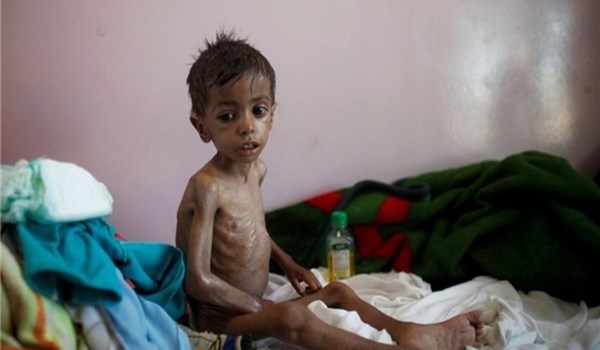Red Cross: More Than 75% of Yemenis Need Aid


“Almost every aspect of daily life of Yemeni people has been affected by the ongoing Saudi-led war on Yemen – fuel and food prices, access to clean water and the ability to move around. More than 75 percent of the population is in need of aid,” Mirella Hodeib said in an exclusive interview with FNA.
She added that the International Humanitarian Law (IHL) has been repetitively violated in Yemen in the past couple of years, and she called for consideration of the situation of the population.
The Red Cross official called for more effective consideration of the situation of the population during the planning and execution of military action in order to better respect and protect civilians.
She called for measures to protect civilians and civilian infrastructure to ensure the safety of the civilian population and civilian objects, including medical facilities and medical staff.
Hodeib reminded that under IHL, the civilian population, medical personnel, ambulances, medical facilities schools, prisons, but also water and electricity plants must be respected and protected in all circumstances and the work of medical personnel must be facilitated.
“Difficulty of movement in and out of the country but also within the country has had a direct impact on access to healthcare to the population,” she added, warning about the worsening humanitarian situation in the war-ravaged country.
The ICRC Communication Coordinator in Yemen underlined that the impact of the conflict on medical facilities and essential infrastructure is worsening the humanitarian consequences for Yemenis.
“Only 45% of health facilities are functioning and 14.8 million people lack access to basic healthcare,” she said, warning that reports of cases of all kinds of preventable diseases re-emerging including cholera, meningitis, measles and diphtheria are yet another reminder of the incapacity of Yemen’s health system to cope with ever increasing needs.
Saudi Arabia and some of its allies, including the United Arab Emirates, Morocco, and Sudan, launched a brutal war against Yemen in March 2015 in an attempt to reinstall Yemen’s former president Abd Rabbuh Mansur Hadi.
The aggression initially consisted of a bombing campaign but was later coupled with a naval blockade and the deployment of ground forces to Yemen. While the ICRC official put the death toll at 16,200, Yemen’s Health Ministry says over 20,000 people have died since the war began.
The Saudi-led war has also taken a heavy toll on the country’s infrastructure, destroying hospitals, schools, and factories. The United Nations (UN) has said that a record 22.2 million Yemenis are in dire need of food, including 8.4 million threatened by severe hunger.
Despite Riyadh’s claims that it is bombing the positions of the Ansarullah fighters, Saudi bombers are flattening residential areas and civilian infrastructures.
In August, a Saudi air raid hit a school bus as it drove through a market in the town of Dhahyan in Sa’ada Province in Northwestern Yemen, killing a total of 51 people, among them 40 children, and injuring 79 others, mostly children.
According to several reports, the Saudi-led air campaign against Yemen has driven the impoverished country towards humanitarian disaster, as Saudi Arabia’s deadly campaign prevented the patients from travelling abroad for treatment and blocked the entry of medicine into the war-torn country.







